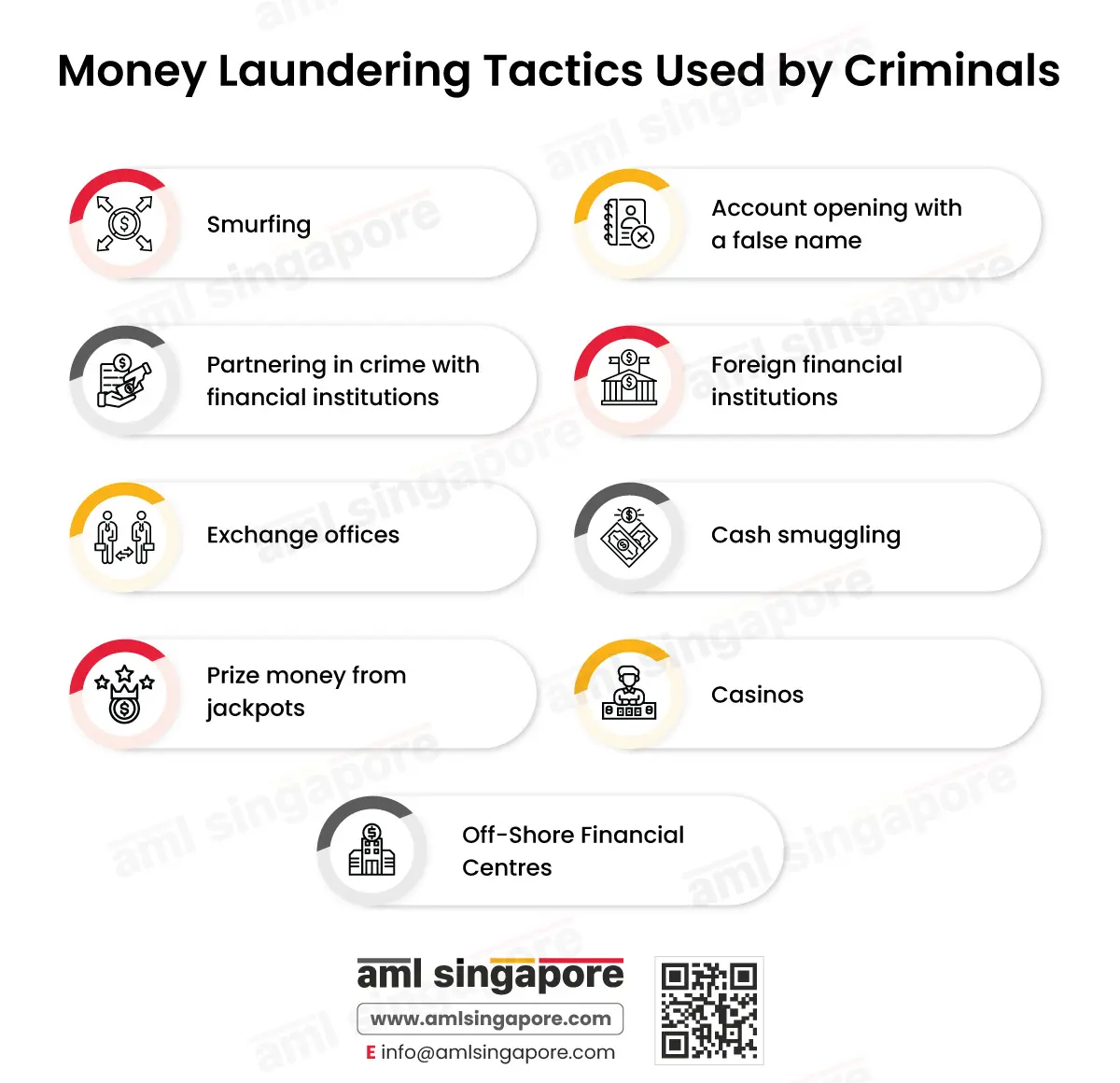What is Money Laundering?
What is Money Laundering?
Money laundering is a process of passing illegally obtained money into the financial system by fraudulently showing the sources of such funds to be legal. The criminals try to disguise or conceal the origin and owner of illegal proceeds, and such funds are transferred to the legal, financial systems using various money laundering techniques.
The illicit funds are generally in the form of cash, and therefore criminals cannot use this massive amount of money freely without raising the suspicion of the authorities. The authorities and the business organizations must be vigilant, follow the Anti-Money Laundering laws, and deter criminals from carrying out their laundering activities.
If they deposit a large sum of illegally obtained funds at one bank, the action will trigger suspicion, and the possibility of catching hold of the criminals would be very high. So, generally, criminals deposit a small amount in multiple banks through a network of people to avoid the reporting threshold or being caught by the authorities.
Criminals first try to distance themselves from the source of illicit money, as authorities can easily spot when large transactions from unverified sources are made. So, the criminals quickly launder this money by creating multiple layers to escape the eyes of the authorities.
Money laundering, with its intensity, attracts a considerable penalty and ends up with the criminals in prison as per the AML regulations of the respective country. The government of Singapore has introduced various regulations, such as the Corruption, Drug Trafficking and Other Serious Crimes (Confiscation of Benefits) Act, Terrorism (Suppression of Financing) Act, and Precious Stones and Precious Metals (Prevention Of Money Laundering and Terrorism Financing) Act, to prevent money laundering and financing of terrorism and criminal organizations.
Different methods used by criminals to launder money
Criminals use different methods to launder money and exploit various institutions to use them as a medium to transfer money into the legal system. To combat money laundering, it is critical to understand these money laundering techniques:
Smurfing:
By this method, the transactions are broken down into smaller amounts to avoid the reporting threshold or triggering the attention of the authorities. The money is transferred to different accounts and banks through groups of people to prevent detection.
Account opening with a false name:
An account is opened in a fictitious name, through which the fictional transactions are carried out. It is done to hide the person’s original identity or the source of funds.
Partnering in crime with financial institutions:
Partners in crime from financial institutions hold back the information related to money laundering and avoid record keeping. This method uses non-functional companies or shell companies to launder money.
Foreign financial institutions:
Cross-border centers and foreign financial institutions collaborate to transfer illegally obtained money into another country’s legal system.
Exchange offices:
Exchange offices enable the conversion of currencies (in cash) using illegally obtained funds and provide a receipt for the same, creating a layer between the funds and their illegal source.
Cash smuggling:
Criminals transfer the illicit proceeds to countries where AML regulations and reporting requirements are weak and not rigidly applied to the people used as money couriers. By exploiting the legal vulnerabilities, the cash is smuggled into the legal system of other countries, where such money can be used without fear of legal repercussions.
Prize money from jackpots:
Sometimes, the jackpots or lotteries are planned to launder money. Here, the winner is pre-decided, and the award price is too high than the usual jackpots given to the criminals to display the same as originating from genuine sources.
Casinos:
This method is used by criminals to buy chips to gamble, but very little gambling is involved as opposed to the vast amount shown in gambling. The criminals then replace the chips and take cheques to be deposited in the banks. The illegal money is transferred to the casinos and later on (after the deduction of commission) is shown as earnings from gambling rather than illegally sourced funds.
Off-Shore Financial Centres:
Off-shore financial centers often become the hub for laundered money. Banks or shell companies are created in such centers, where legal entities are formed in which the source of the real owners remains dubious and unknown. The cross-border centers are established, and the process is easy to set up, as they don’t follow legal rules and regulations. So, these financial institutions become the perfect place for criminals to launder money.
Why is the prevention of money laundering important?
A massive amount of illegal money, or we call it ‘black money,’ has seeped into the legal systems across the world. As per an estimate, billions of dollars are laundered annually, and it’s high time to check on this crime.
Such money is obtained illegally through activities like drug trafficking, smuggling, etc., which ultimately increases money laundering activities and the widespread of vice-like narcotics. Usually, terrorist groups control them, which are dangerous and pose a massive security threat to the country and its citizens.
Black money is used to fund other criminal activities such as commercial fraud, human trafficking, organ trafficking, blackmail, kidnapping, etc. These activities threaten society, the country, and the entire globe. It encourages the criminals to become financially strong and exercise control over democracy and the country’s political affairs, leading to corruption and bribery. This way, the country’s financial, social and political system starts deteriorating.
Therefore, countries create Anti-Money Laundering laws to identify suspicious financial transactions and catch criminals immediately before they exploit the economy. Financial Action Task Force (‘FATF’) has issued international recommendations to control financial crimes, and various member countries are bound to follow these recommendations and implement their AML regulations.
It is vital to eradicate the organizations or firms that use illegal money to fund criminal and terrorist activities, which are a massive threat to the country’s economy and society. It destroys the social fabric of the country.
AML Singapore – your partner in the AML compliance journey
About the Author
Pathik Shah
FCA, CAMS, CISA, CS, DISA (ICAI), FAFP (ICAI)
Pathik is a Chartered Accountant with more than 26 years of experience in governance, risk, and compliance. He helps companies with end-to-end AML compliance services, from conducting Enterprise- Wide Risk Assessments to implementing the robust AML Compliance framework. He has played a pivotal role as a functional expert in developing and implementing RegTech solutions for streamlined compliance.

